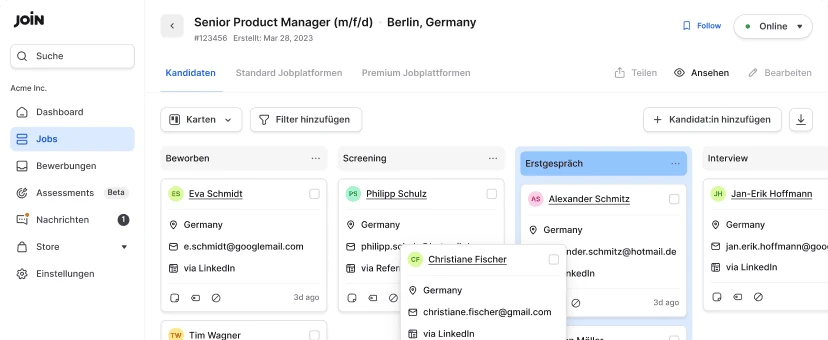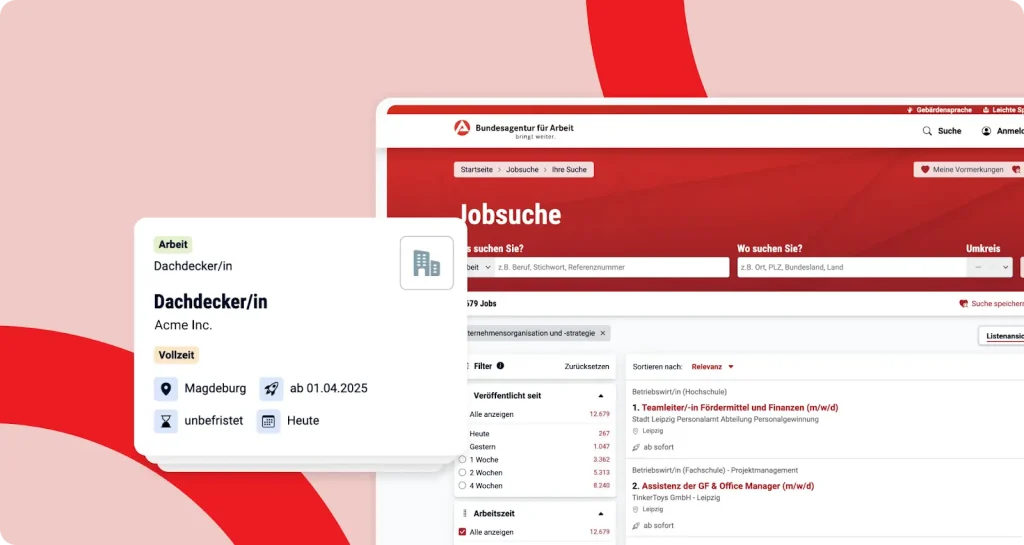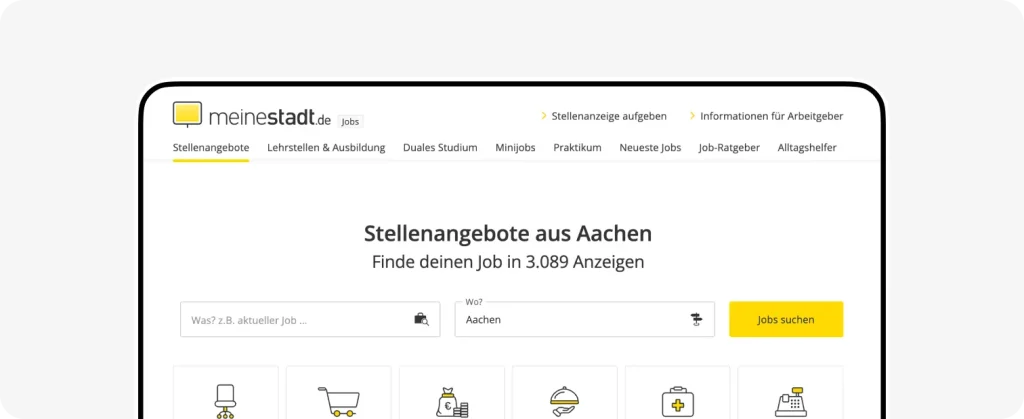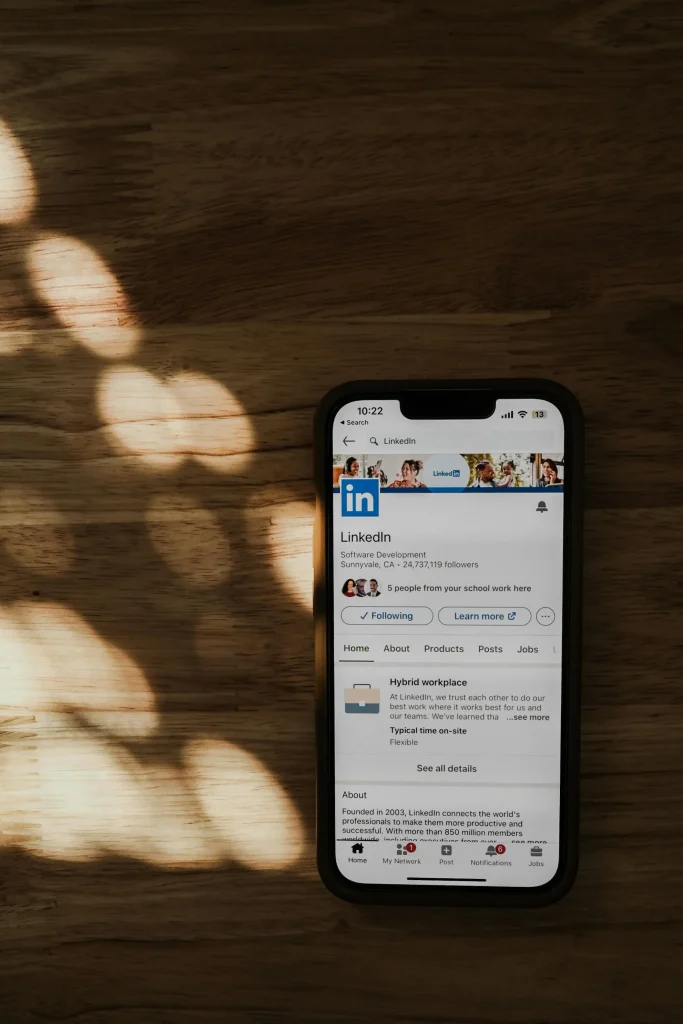Best interview questions for your hiring process
GDPR Data Protection Officer Interview questions
A GDPR Data Protection Officer is the main point of contact in the business on all matters related to data protection, data privacy, and compliance with the regulations as set out by national and international law.
Companies operating in the European Union often specifically look for a Data Protection Officer (DPO) that specialises in the General Data Protection Regulation (GDPR) that came into EU law in 2018. If that’s the case for your business it’s a good idea to ask specific GDPR related questions during the job interview.
Depending on where your company operates, you might also want to test their knowledge on data protection regulations outside of the EU.
If your company fails to comply with data protection regulations you can risk hefty fines. So it’s important that you ensure that your new DPO knows their stuff.
Here are a few of the important qualities to look out for when hiring a new GDPR Data Protection Officer:
- Deep understanding of data protection law, in particular GDPR.
- Strong ability to work independently while also being a great communicator (the role of a data privacy officer is often advisory).
- Structured, organised, and detailed in their work.
- Confident in handling sensitive data appropriately.
- Drive to continuously stay up to date with the latest data protection regulations.

Interviewing a GDPR Data Protection Officer
Congratulations. a candidate applied for the DPO position at your company! On paper they look like the perfect fit, so now it’s time to start the interview process. That’s where our GDPR Data Protection Officer interview questions come in.
We’ve created a list of useful questions for you to ask your candidate, tailored to the specific requirements and responsibilities of this role.
With these interview questions, you’ll be off to a great start. But do bear in mind that our interview questions are suggestions for the earlier stages of the application process and candidates with average work experience. Later on in the process more detailed interview questions can be used to test the candidate’s skills.
How to open the DPO job interview
No matter whether the candidate is junior or senior, a job interview can be scary and stressful. That’s why it’s always a good idea to start the interview with some positive opening questions to help them feel comfortable and at ease. After all, if someone feels comfortable in a situation they are more likely to speak freely and open up. This means you have a better chance at getting to know them.
Best interview questions for your hiring process
See our GDPR Data Protection Officer Job Description hereFor the interview
A positive opener to start
What has been your journey so far?
What do you enjoy most about data protection?
Why did you decide to become a GDPR Data Protection Officer?
Behavioral Questions
Can you give me an example of a time you had to prioritise certain tasks or projects over others.
Tell me about how you work under pressure.
As the main point of contact regarding data protection in the business, there’s a good chance the new DPO is approached by many stakeholders at once. This makes working under pressure an important skill for this role. It also gives you an idea of how they work under certain amounts of pressure and stress.
What does an ideal work environment look like for you?
While all candidates should be adaptable, this question will give you an idea of how well the individual will fit in with your team and into the working environment you have. It’s important that your candidate will fit into the teams and culture you’ve already fostered.
How do you keep up to date with emerging trends in technology and law?
As a DPO, the candidate must always be up to speed with the latest amendments to data protection regulations and technologies.
Could you tell me about a time that you made a mistake at work? How did you handle that?
This should highlight their level of critical thinking and problem-solving skills, they should be able to own their mistakes and understand the importance of reacting fast to solve them. Within this role it’s essential that mistakes are minimal and solved quickly.
Soft Skills
When collaborating with a stakeholder whose data privacy knowledge is limited, how do you ensure they understand the task or data you’re presenting them with?
This is a situation a GDPR Data Protection Officers will frequently be in, so knowing that their communication and collaboration skills are up to scratch is essential. Being able to break down complex details into easy to understand tasks will make your teams lives a lot easier.
What are your actions if employees disagree with your decision?
This gives you an idea of how the candidate deals with conflict. This is an important skill for this role as they will have to deal with multiple stakeholders across the organisation.
If you discovered you could not meet a deadline you were set, how would you deal with this?
Here you’ll get an insight into the candidate’s honesty and communication skills, as well as another look at how they deal with problems.
In your opinion, what are some of the most important qualities that someone in this position should possess?
This will give you an idea of the lessons the candidate has learned in the past, what they value the most and the qualities they’ll personally be bringing to the role.
Hard Skills
Give me a few examples of types of DPIAs, privacy seals, and information security standards certifications you have worked with?
This will give you an idea of their level of experience and whether this is in line with the requirements for your outstanding role.
What risk assessment methodology would you apply and why?
This is again a job-specific question that will teach you a bit more about the way in which the candidate works and how experienced they are. This gives you a better understanding of what to expect of them if you would hire them.
How familiar are you with our company and the industry we operate in?
There’s a reasonable chance that your prospective employee has not worked in your industry before. This is not necessarily a negative point, but it is worth knowing so you can estimate how long it will take to onboard them.
How (and how often) will you keep the board informed of your progress?
Clear communication and information sharing are essential in this role. This often involves presenting information directly to the board/higher management. Knowing how the candidate plans to structure this gives you a great insight into their future way of working.
What are the first three things you would do in your role as our DPO?
This is a very concrete question that will give you an idea of how the candidate will approach your company/project, as well as how much research they’ve done prior to the interview.
What level of education have you reached in relation to this role?
This will let you know how experienced the candidate is and what their seniority level would be if they joined your organisation.
Operational / Situational Questions
How do you effectively ensure the quality your own work? Please walk me through the process.
Often, attention to detail is essential in a data protection role. This question will not only ensure the candidate already has a good process in place but will also demonstrate that they understand this importance.
How do you respond to negative feedback?
This will show good communication skills, and the ability to take criticism, as well as their willingness to learn and improve.
How do you usually deliver bad news to an employee? What would your approach be?
Effective communication and dealing with sensitive information is a big part of the role, the candidate should have a good level of empathy while still delivering the necessary information.
Tell me about a time when someone else caused blockers in your work. How did you resolve that?
Clear and effective communication, as well as understanding the importance of deadlines, is an excellent trait to have in a GDPR Data Protection Officer. This question aims to find out if the candidate has these qualities.

Start hiring and prepare your interview
All platforms are available for you to promote your job through JOIN.
Create job ad for free


This will give you an idea of how the candidate handles prioritisation and juggles multiple tasks and deadlines at once. This is crucial for a GDPR Data Privacy Officer as they will have to decide which areas to focus on first to minimise the company’s risk of non-compliance.